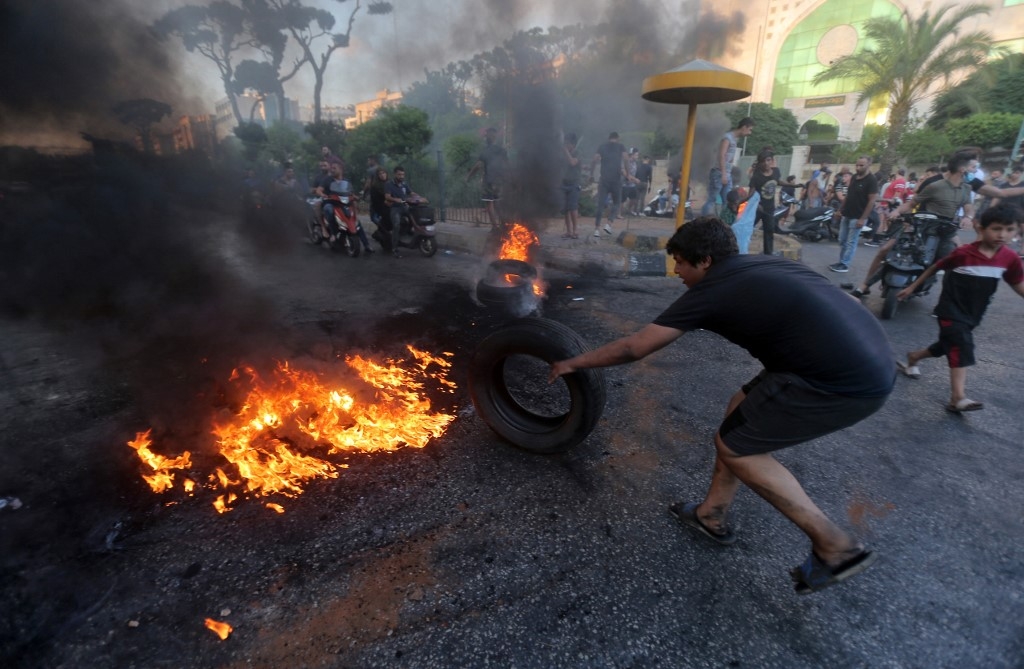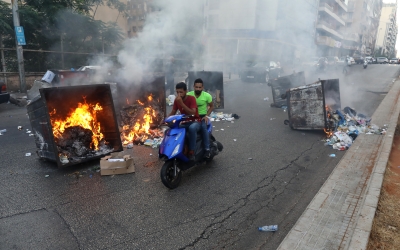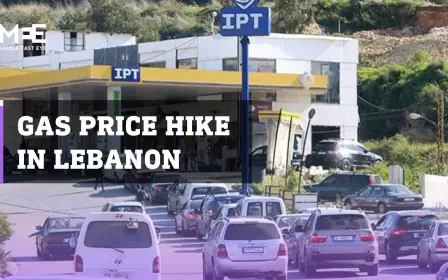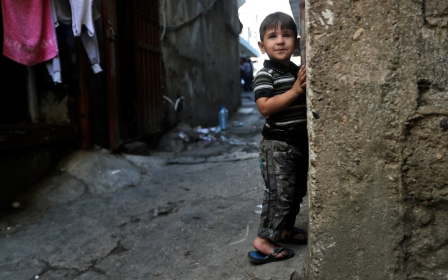Lebanon days away from 'social explosion', warns prime minister

Lebanon is only days away from large-scale social unrest, the country's prime minister warned on Tuesday, amid a financial crisis that has pushed more than half of the country's population into poverty.
"Lebanon is a few days away from the social explosion. The Lebanese are facing this dark fate alone," caretaker Prime Minister Hassan Diab said during a meeting with diplomats in Beirut.
He urged the international community to "help save Lebanese from death and prevent Lebanon's demise".
Since October 2019, the Lebanese lira has lost over 90 percent of its value amid a debt-driven financial crisis. The World Bank has warned the recession could eventually rank as one of the worst globally since the 1850s.
According to the report, Lebanon’s GDP fell from close to $55bn in 2018 to around $33bn in 2020, causing a surge in inflation which is expected to worsen this year.
Lebanon has also been without a government since August, when an explosion in Beirut port ripped through the city, leaving some 200 dead and prompting Diab to resign.
Yet Diab remains in place in a caretaker capacity, with prime minister-designate Saad Hariri struggling to form a new government as Lebanon's economic crisis deepens.
The economic collapse has affected almost every aspect of life in Lebanon, and Diab now fears that hyperinflation and acute shortages of electricity and fuel could provoke widespread unrest.
'Threat to Lebanese lives'
In April 2018, an international donor conference pledged $11bn in "soft" loans in return for economic reforms which are yet to be implemented. Lebanon is also seeking a further $10bn from the International Monetary Fund. However, talks are on hold until a new government is formed.
The prime minister acknowledged the repeated calls for assistance to be linked to government reform but said "the siege imposed" on Lebanon was not affecting the corrupt – an apparent reference to politicians.
"Linking Lebanon's assistance to the formation of a new government has become a threat to the lives of the Lebanese and to the Lebanese entity," he said.
Last month, the European Union's foreign policy chief Josep Borrell threatened Lebanese leaders with sanctions unless they stopped obstructing the formation of a government and implemented reforms.
The threat came as government offices, banks, shops and businesses took part in a nationwide strike, demonstrating against the country's economic crisis and corruption amongst the political class.
Middle East Eye delivers independent and unrivalled coverage and analysis of the Middle East, North Africa and beyond. To learn more about republishing this content and the associated fees, please fill out this form. More about MEE can be found here.





